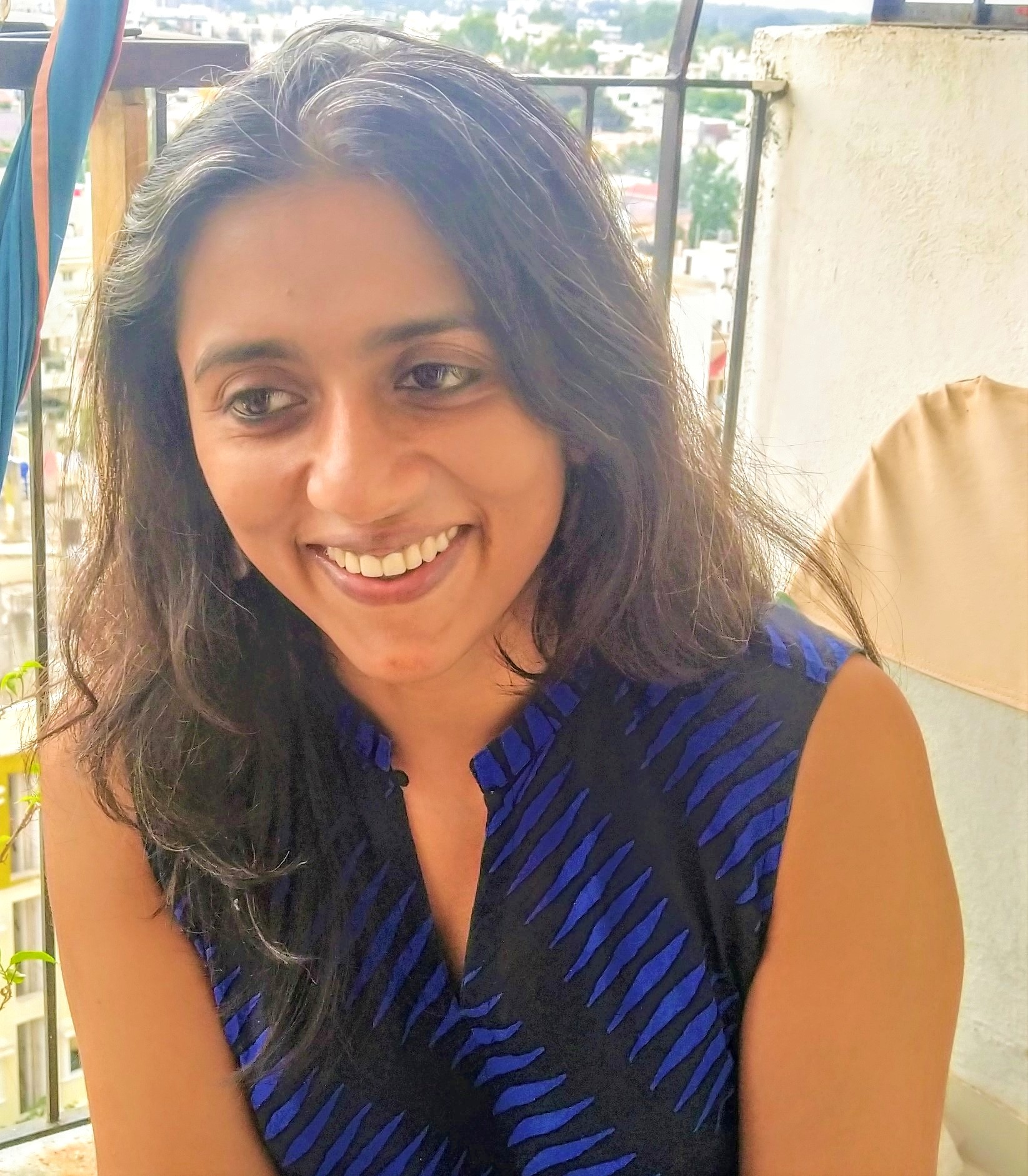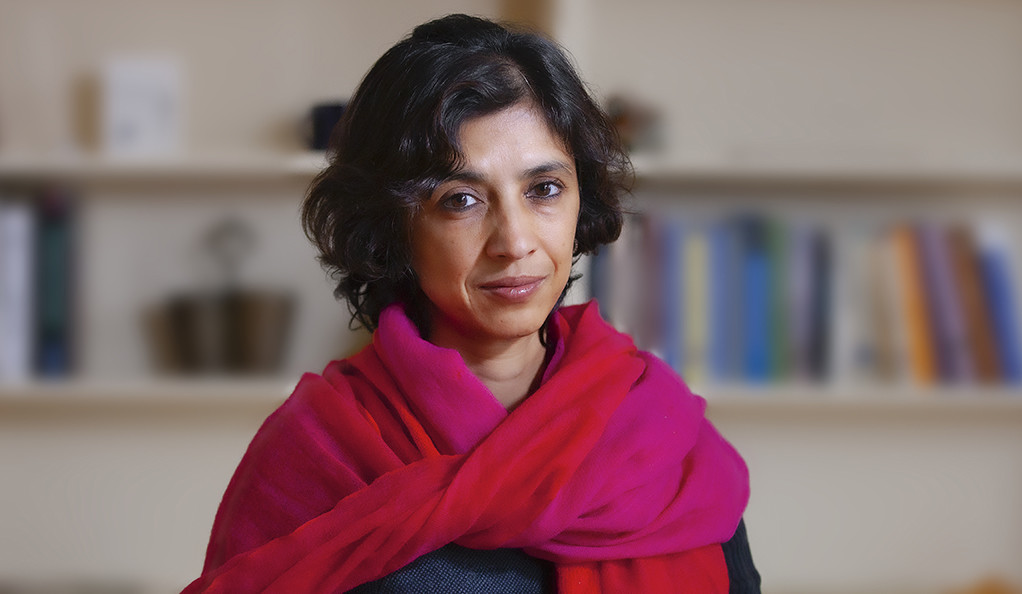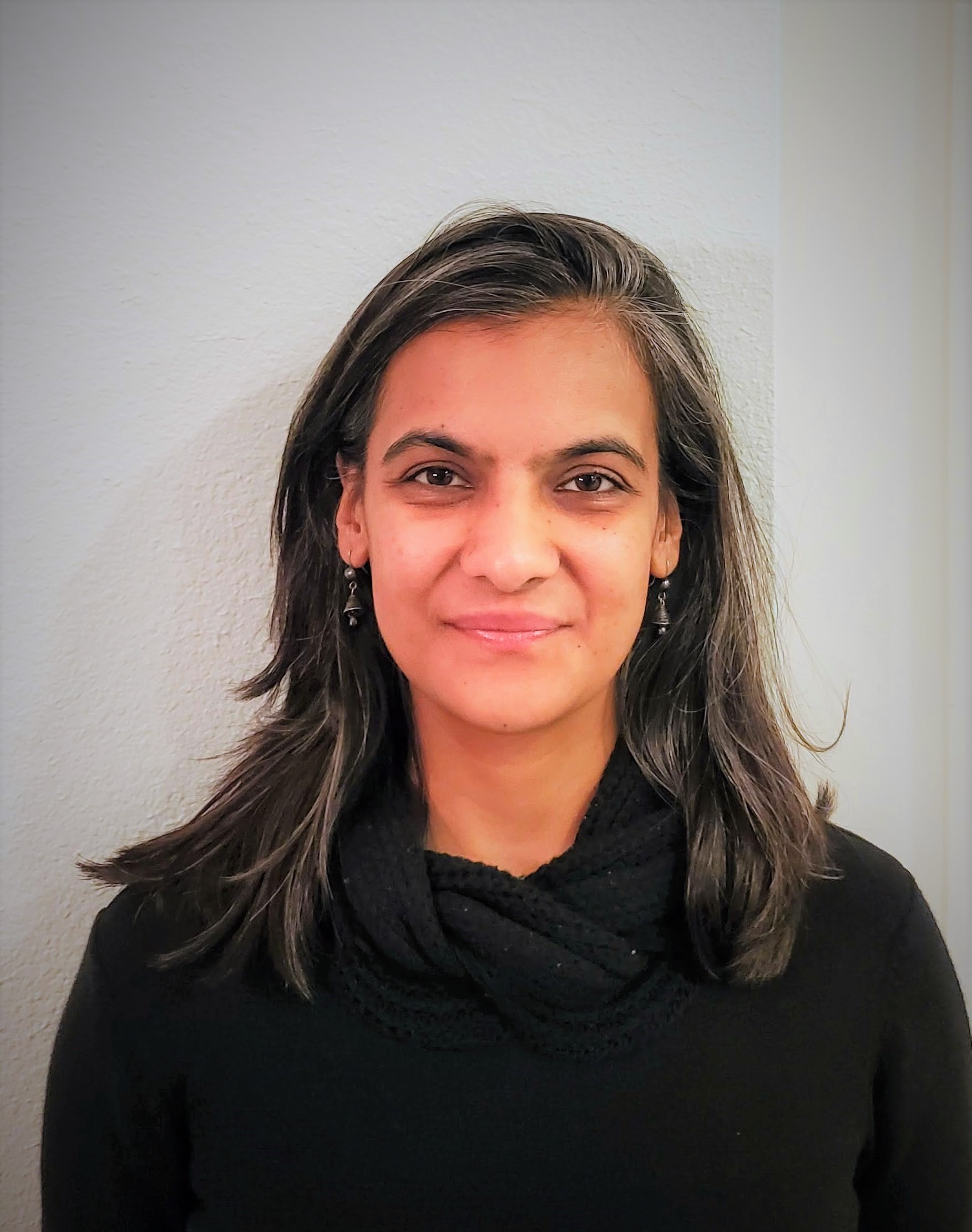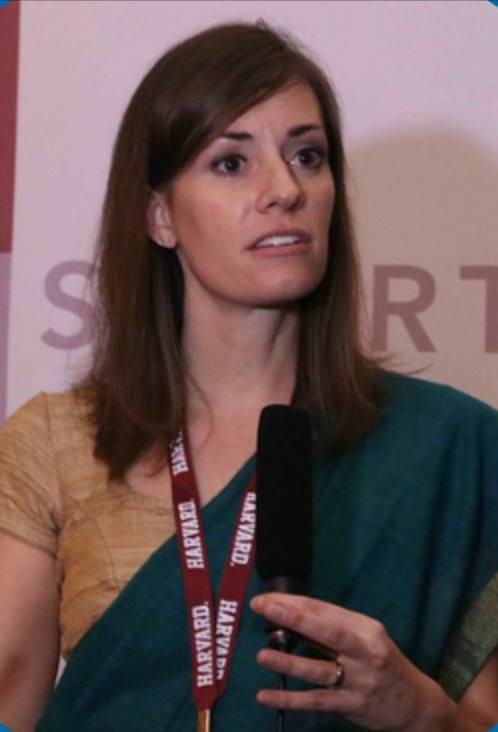Conference Program: Gender-Sensitive Economic Recovery and Resilience in Asia
Inclusion Economics at Yale University, in partnership with the Economic Growth Center and the Asian Development Bank Institute, hosted a conference from March 9-10, 2023 in Tokyo, Japan, to explore new research on women’s economic activity in the region, the factors that enable and constrain it, and how this research speaks to pandemic recovery and gender-sensitive responses to future shocks.
The Covid-19 pandemic has touched everyone in some way, but many of its impacts have been disproportionately felt by women: job losses and care burdens, for example, have fallen on women relatively more than men (e.g., Alon et al. 2020, Deshpande 2020). Three years after the pandemic began, and as countries increasingly move toward recovery (even as new threats are on the horizon), what do we know about how women’s economic engagement has changed? And what policies can help ensure post-pandemic recoveries and preparation for future shocks are gender inclusive?
On March 9-10, 2023, Inclusion Economics at Yale University and the Economic Growth Center partnered with the Asian Development Bank Institute (ADBI) to hold a two-day conference in Tokyo to understand the latest economics research about gender and economic opportunities in the region, with a focus on what this research tells us about gender-sensitive Covid recovery and preparation for future shocks. The conference facilitated the sharing of new research and discussion and dialogue on potential policy responses to identified challenges.
Sessions
Keynote
Policy Roundtable
Keynote Speaker
Rohini Pande, Yale University
David Yanagizawa-Drott, University of Zurich
Policy Roundtable Speakers
Roli Asthana, United Nations
Erik Berglof, Chief Economist, Asian Infrastructure Investment Bank
Takahiro Sawayanagi, Advocacy Officer, Plan International Japan
Hans Timmer, Chief Economist, South Asia, World Bank
Moderator: Charity Troyer Moore, Scientific Director, Inclusion Economics at Yale University
Structural transformation and women’s economic participation
Growing Like India: The Unequal Effects of Service-Led Growth (with Tianyu Fan and Fabrizio Zilibotti) presented by Michael Peters, Yale University
Abstract: In many developing countries, structural transformation in recent years takes the form of a rapid rise of services with limited industrialization. Many such services are of a local nature and serve consumers (retail, restaurants, residential real estate, etc.). In this paper, we estimate the welfare effects of this pattern of development across the income ladder. We construct a spatial equilibrium model in which, over time, the expansion of consumer services is both a consequence (income effects) and a cause (productivity growth) of the development process. We estimate the model using Indian household data on sectoral employment and consumption expenditure. We find that productivity growth in non-tradable consumer services was an important driver of rising living standards, accounting for one-third of aggregate welfare gains. However, these gains were heavily skewed toward high-income households living in urban districts.
China’s Rebalancing and Gender Inequality (with Era Dabla-Norris and Bin Grace Li) presented by Mariya Brussevich, Ibmec-RJ and International Monetary Fund
Abstract: This paper examines gender inequality in the context of structural transformation and rebalancing in China. We document declining women’s relative wages and labor force participation in China during the last two decades, despite rapid growth and expansion of the service sector. Using household data, we provide evidence consistent with a U-shaped relationship between economic development and women’s labor market outcomes. Using a model of structural transformation, we show that labor market barriers for women have increased over time. Model counterfactuals suggest that removing these barriers and increasing service sector productivity can boost both gender equality and economic growth in China.
Cross-country evidence on women’s economic participation
Understanding the Gender Division of Work across Countries (with Cheryl Doss, Douglas Gollin, and Markus Poschke) presented by Charles Gottlieb, University of St. Gallen
Abstract: We harmonize labor force, household and time use surveys from over 100 countries to build two new data sets, the Harmonized World Labor Force and Time Use Surveys. We use these to document patterns of market work, household production and sector of work across the development spectrum for different demographic groups. We show that (1) structural change out of agriculture is driven by the movement of entire households, and not just individuals, indicating that understanding it requires a household perspective on labor supply and sectoral choice. (2) Patterns of market work versus household production differ significantly by gender and marital status, with particularly low market relative to household production by married urban women in low income countries and married women in middle income countries. (3) Female employment rates in a country are related to male choices of sector. To understand the economic forces behind these facts, we write down a two sector model with home production and heterogeneous households that differ by marital status and sex. We use the model to transparently infer determinants of market work and household production by marital status, sex, and sector. This reveals that low market work of urban married women in low income countries reflects particularly high disutility of market work for this group, with smaller roles for relative wages and household production requirements. Model simulations suggest that reducing this disutility to that of rural married women would reduce agricultural employment and change the population composition of cities. Hence, barriers to female urban employment can hold back structural change out of agriculture.
Shocks and Women in Asia and the Pacific
How Does Digitization Impact Female Entrepreneurship and the Gender Gap? Evidence from China (with Lin William Cong, Bo Liu, and Xiaohan Yang) presented by Xiaobo Zhang, Peking University and IFPRI
Abstract: Female entrepreneurial activities are underrepresented in both developed and developing countries because of various constraints facing women entrepreneurs. To unleash their potential, it is important to remove the impediments. Using both primarily collected online and offline enterprise surveys as well as administrative data in China, this paper shows that the expansion of e-commerce and digital marketplaces has promoted female entrepreneurship and employment by addressing some of the impediments. Moreover, in the face of Covid shocks, women entrepreneurs are more likely to adopt e-commerce and other digital technologies.
Household business during the COVID-19 pandemic: Role of coping strategy and government financial aid (with Long Trinh, Wataru Kodama, Kunhyui Kim, and Peter Morgan) presented by Dina Azhgaliyeva, ADBI
Abstract: The COVID-19 pandemic and related policy measures such as lockdown, social distances, and travel restrictions have been affecting household and their household/family business in Asian developing countries (Azhgaliyeva et al. 2022; Morgan and Trinh 2021). Given a large share of households engaging in household business, which has limited resources and supply chain and particularly vulnerable to the pandemic (KPMG 2021), mitigating the negative effects of the pandemic and encouraging a recovery of the sector is of great importance. However, little is known how households have mitigated negative effects on their household business during the pandemic. Using Asian Development Bank Institute (ADBI)’s representative household survey datasets in seventeen Asian countries from ASEAN and CAREC regions, this study investigates how households in Asian developing countries have mitigated the negative pandemic effects on their business conditions. Particularly, we focus on a role of coping strategy (business adjustment) and government financial aid (cash transfer) in mitigating the negative pandemic impacts for the following reasons. First, coping strategy plays important role to mitigate negative exogenous shock, and its roles during the pandemic are found for firms in developed countries (cf, Kraus et al. 2020). We assess its roles in the household business context of Asian developing countries. Second, large volume of studies has assessed the impacts of financial aid on household welfare both in developed and developing country contexts (e.g., Baker et al. 2020; Bui et al. 2021; Christelis et al. 2020). But its effects on household business conditions are rarely studied, despite the fact that some cash transfer programs in Asian developing countries target households who are engaging in household business (cf., IMF 2022). Last, financial aid could benefit household business conditions in various ways, which includes the mechanism through increasing the probability of adopting effective coping strategies. Investigating a role of coping strategy and government financial are important to understand how the household business have mitigated the negative pandemic effects.
COVID-19 Lockdown and Collective Activities: Evidence from the World’s Largest Self-Help Group Program (with Thomas de Hoop, Chinmaya Holla Udayakumar, and Sapna Desai) presented by Garima Siwach, American Institutes for Research
Abstract: We study the impact of the COVID-19 lockdown in 2020 on monthly savings of Self-Help Groups (SHGs) in India, and the role of SHGs in mitigating the economic effects of the lockdown. Administrative data suggest that monthly savings of SHGs declined by 66% between March and July of 2020, with larger declines in areas with more stringent lockdowns. Survey data revealed that SHG and non-SHG households had similar consumption and income losses during the lockdown. Households with SHG members and those that received assistance from SHGs in procuring ration or accessing community kitchens reported significantly higher food security, however.
Digital aid helps address the humanitarian needs of vulnerable women in Afghanistan (with Michael Callen, Michael Findley, and Miguel Fajardo-Steinhauser) presented by Tarek Ghani, Washington University in St. Louis
Abstract: Humanitarian efforts in Afghanistan face a dilemma: either deliver aid and risk supporting a hostile regime or suspend operations in the face of acute humanitarian needs. Transferring funds directly to highly vulnerable Afghans via digital channels offers a third option to address basic needs while limiting the risks of diversion or informal taxation. We report results from a randomized evaluation of an aid program providing vulnerable Afghan women with digital payments of 4000 AFN (appx. 45 USD) every two weeks for two months. Using monthly survey data, we document that digital aid payments addressed humanitarian needs -- leading to fewer skipped meals and less reliance on bread and tea meals – and that government officials did not tax beneficiaries. The aid model had minimal costs of delivery and did not require a cash out option, as payments are channeled directly to beneficiaries, who then exchange digital funds directly for essential goods from local merchants. Blockchain technology enables end-to-end traceability of financial flows. In an expert survey, academics and practitioners underpredicted the ability of beneficiaries to use digital funds and overpredicted the incidence of diversion or taxation of digital aid payments.
Gender and Matching Frictions
A leaky pipeline: Decomposing the gender gap in job search in urban Pakistan (with Elisabetta Gentile, Nikita Kohli, Zunia Tirmazee, and Kate Vyborny) presented by Nivedhitha Subramanian, Bates College
Abstract: In this paper, we exploit detailed administrative data from Job Talash, a free job search and matching platform that caters to the population of Lahore, Pakistan, to empirically investigate at what stage of the job search process the gender gap in employment emerges.
Information, Intermediaries, and International Migration (with Samuel Bazzi, Lisa Cameron, and Firman Witoelar) presented by Simone Schaner, University of Southern California
Abstract: Job seekers face substantial information frictions, especially in international labor markets where intermediaries match prospective migrants with overseas employers. We conducted a randomized trial in Indonesia to explore how information about intermediary quality shapes migration outcomes. Holding access to information about the return to choosing a high-quality intermediary constant, intermediary-specific quality disclosure reduces the migration rate, cutting use of low-quality providers. Workers who do migrate receive better pre-departure preparation and have improved experiences abroad, despite no change in occupation or destination. These results are not driven by changes in beliefs about average provider quality or the return to migration. Nor does selection explain improved outcomes for those who migrate with quality disclosure. Together, our findings are consistent with an increase in the option value of search: with better ability to differentiate offer quality, workers search longer, select higher-quality intermediaries, and ultimately have better migration experiences.
Gender Gaps in Entry into Competitive Careers: Evidence from Indian Civil Services (with Kunal Mangal) presented by Niharika Singh, Columbia University
Abstract: Entry into prestigious, high-paying jobs often depends on succeeding in tournaments. These are the same jobs in which women often tend to be under-represented. In this paper, we explore the causes of under-representation of women in the Indian civil services, where placement depends on succeeding in a highly competitive examination process. Using a dataset from a large Indian state that covers the universe of applicants and their placement outcomes to state-level civil service jobs between 2012-2019, we uncover where gaps arise in the recruitment process. We find that test re-taking is a key constraint for women: successful placement typically requires multiple attempts, but women—particularly those that score well on initial attempts and are most likely to be successful—are less likely to retake the exam than men. The dynamic selection of applicants across exam attempts contributes to a gender gap in placement outcomes. We provide suggestive evidence that marriage pressure constrains high-ability women from making more attempts.
Children and Labor Supply
Caring for Children and Firms? The Impact of Preschool Expansion on Firm Productivity (with Massimiliano Cali, Hillary C. Johnson, and Nabil R. Ryandiansyah) presented by Elizaveta Perova, World Bank
Abstract: Childcare services enable women who were previously unable to work due to taking care of their children to join the labor market. If some women are more productive in market work, rather than unpaid household work, the availability of childcare can potentially improve the allocation of talent across different occupations, triggering an increase in productivity. This paper tests this hypothesis using a survey of manufacturing plants and data on preschool expansion in Indonesia. The analysis relies on a triple difference estimation comparing plants in sectors with different degrees of female labor at baseline. The results suggest that between 2002 and 2014, when a rapid preschool expansion took place in Indonesia, an additional preschool per 1,000 children increased the total factor productivity of manufacturing plants by 11 percent for plants with an average fraction of female workers. The paper provides suggestive evidence that these effects were driven by better labor market matching, enabled by the expansion of female labor supply, and greater job stability for female employees. The results unveil a novel short-term economic impact of childcare services, which complements the long-term growth impact through human capital accumulation.
Childbirth and women’s labour market transitions in India (with Rahul Lahoti and Hema Swaminathan) presented by Rosa Abraham, Azim Premzi University
Abstract: Marriage and motherhood are almost universal and among the most critical events in a women’s life in developing countries. The impact of childbirth on labour market participation of women has been discussed extensively in the context of developed countries, but impact of marriage and in a developing country context are limited due to lack of longitudinal data. In this paper, using a Life History Calendar approach, we collect retrospective information on major events ( marriage, childbirth, labour market transitions) and the concurrent employment status of men and women over their adult lives. Using an event study model, we estimate the impact of marriage and first childbirth on women’s labour market participation. Our main findings are twofold. First, there is a sharp and sustained jump in women’s labor supply after marriage. Second, women do not experience any penalty in their labour market participation after childbirth. These findings are robust to inclusion of additional controls and various other robustness tests. We find that the increase in women’s labor supply post marriage is driven by agricultural informal work. It is concentrated among women who get married at younger ages, are less educated and belong to poorer households. Our results might seem surprising and counter-intuitive at first, but the Indian context helps understand them better. The predominantly informal nature of the Indian economy implies there is ease of entry into (and exit from) employment. This allows for women to enter or remain in the workforce on marriage and childbirth. In addition, the norms surrounding mobility and employment are more conservative for unmarried women compared to married women making outside employment more acceptable for the latter. Early age of marriage (half before 18) and the need to earn to support their marital family may also explain our findings. Our work underscores the importance of context when considering women’s work. Household responsibilities after marriage and childbirth may not be binding constraints as is often believed, especially in the context of low income, informal economies.
Gender and Networks
Can network ties help women with entrepreneurship? presented by Juni Singh, CalTech
Abstract: In developing countries, despite the large number of skill and entrepreneurship development programs, the take up of entrepreneurial activities is low. This paper focuses to bridge this gap by studying the role of social networks to facilitate entrepreneurial growth. Through an RCT, we vary if women attend a three day training program with a randomly matched peer in the network vs alone. We find that pairing matters only under certain characteristics depending on the network position of the paired. We look at the centrality of the peer by facilitating stronger connections as a plausible mechanism to help women.
Gender Heterogeneity in Peer Effects on Work: Evidence from Multi-dimensional Social Networks in Rural India (with Hee-Seung Yang and Jun Sung Kim) presented by Youjin Hahn, Yonsei University
Abstract: We investigate heterogeneous peer effects on male and female employment outcomes through various social networks in developing areas. Using data on social networks in rural India, we find a strong peer influence on female labor supply, regardless of peer types, such as friends, relatives, and risk-sharing partners, whereas men’s work decisions seem to be unaffected. The peer effects on female labor supply are mostly driven by peers’ aggregate outcome rather than the average outcome of peers. The results indicate the presence of social multiplier effects such that having more women who work in rural villages amplifies women’s labor force participation. The same-gender network neighbors have a stronger impact on female labor supply than the opposite-gender peers. Moreover, we find that women respond to peer’s aggregate decisions on working outside their village, whereas men’s work locations are more subject to peers’ average outcome. Our findings imply that policymakers could utilize social network information to improve women’s employment and welfare.
Gender and Norms
Father of the Bride, or Steel Magnolias? Targeting men, women or both to reduce child marriage (with Anaya Dam, Wendy Janssens, Umair Kiani, and Karlijn Morsink) presented by Rachel Cassidy, World Bank
Abstract: Interventions that aim to change outcomes for women and children typically target women. Yet in contexts where men are the dominant decision-makers, male preferences and beliefs may remain the binding constraint. We ask – when we target men, women or both, with the same intervention in the same context – how their information and beliefs about private and social returns, versus their power to change household outcomes, trade off. We conduct a cluster-randomized control trial of an edutainment intervention aimed at delaying marriage of adolescent children in rural Pakistan. Our treatment arms target men and boys, women and girls, or both. We find that targeting men, or both genders jointly, significantly reduces child marriage of girls in targeted households. Underlying this, we show that whenever men are treated, they focus on private returns to the household; whenever women are treated, they focus on both private and social returns; and only when both genders are treated jointly, does the focus on social returns also become salient to men.
Learning about Women's Competence: the Dynamic Response of Political Parties to Gender Quotas in South Korea (with Martina Zanella) presented by Jay Euijung Lee, Stockholm University
Abstract: Although gender quotas in politics are one of the most common affirmative action policies worldwide, the merits of these policies remain an object of debate. Opponents of quotas are concerned with an equity-efficiency tradeoff – quotas lower the average quality of politicians. This paper explores this tradeoff by studying the effect of gender quotas on parties’ selection of candidates in South Korean municipal council elections. South Korea provides us with a rare opportunity to observe how highly male-dominated political parties react to gender quotas: (i) we can exploit the discontinuity in the intensity of the quota’s effect at given cut-offs of council size; (ii) gender quotas were implemented in only one of two independent election arms, leaving space for adjustment in the other arm. We find that political parties initially counteract the quota by putting forth fewer female candidates in the unaffected arm. However, this pattern gradually reverses over time. The evidence is consistent with efficiency gains from the quota. Parties initially selected a suboptimally low number of women due to biased beliefs regarding their ability, but they slowly revise their beliefs after exposure.
Male-biased Sex Ratios and Masculinity Norms: Evidence from Australia’s Colonial Past (with Ralph De Haas and Pauline Grosjean) presented by Victoria Baranov, University of Melbourne
Abstract: We document the historical roots and contemporary consequences of masculinity norms –beliefs about the proper conduct of men. We exploit a natural experiment in which convict transportation in the 18th and 19th centuries created a variegated spatial pattern of sex ratios across Australia. We show that in areas with heavily male-biased convict populations, relatively more men volunteered for World War I about a century later. Even at present these areas remain characterized by more violence, higher rates of male suicide and other forms of preventable male mortality, and more male-stereotypical occupational segregation. Moreover, in these historically male-biased areas, more Australians recently voted against same-sex marriage and boys—but not girls—are more likely to be bullied in school. We interpret these results as manifestations of masculinity norms that emerged due to intense local male-male competition. Once established, masculinity norms persisted over time through family socialization as well as peer socialization in schools.
Presenters
Rosa Abraham, Azim Premji University

Rosa Abraham is an Assistant Professor at Azim Premji University. Her research focuses on informal work and women’s employment with particular interest in issues at the intersection of labor statistics and women’s work. At the Centre for Sustainable Employment, she has been involved in the State of Working India reports and in the two primary surveys – India Working Survey and Covid-19 Livelihoods Survey, conducted by the Centre. She previously worked as a researcher at the Ashoka Trust for Research in Ecology and Environment and as a lecturer at the Madras School of Economics.
Roli Asthana, United Nations

Roli Asthana is a UN Resident Coordinator, most recently in Uzbekistan. Previously, she spent 18.5 years at the UK Department for International Development (DFID, now known as FCDO), where she was Head of DFID China until Sep 2021. While at DFID, she worked in a range of leadership roles in India (Deputy Head and Head of Programmes & Partnerships, Strategy, Results & Communications), Asia Regional (Head of Asia Regional Programme and Asia Directors’ Office), South Asia (Head of South Asia Policy Team), Africa Regional (Africa Growth Adviser) and the Middle East (Economic Adviser for Yemen, Palestinian Territories, Jordan, Egypt and MENA Regional). She holds a Ph.D. from the London School of Economics in the political economy of policy reform in developing countries.
Dina Azhgaliyeva, Asian Development Bank Institute

Dina Azhgaliyeva is a Research Fellow at the Asian Development Bank Institute (ADBI). Her research focuses on energy policy, particularly renewable energy, energy efficiency, and energy storage. Before joining ADBI, she worked as a Research Fellow at the National University of Singapore and the University of Reading, and worked as specialist for the Tax Committee, Ministry of Finance of Kazakhstan. She holds a PhD in economics from the University of Essex.
Victoria Baranov, University of Melbourne

Victoria Baranov is an Associate Professor of Economics at the University of Melbourne. Her research explores how health, psychological factors, and norms interact with poverty and economic development. She is a deputy director of the Centre for Market Design, a research affiliate at J-PAL, CEPR and CAGE, and a research fellow at the Life Course Centre and IZA. Victoria received her PhD in Economics from the University of Chicago.
Erik Berglof, Asian Infrastructure Investment Bank
Erik Berglof is the inaugural Chief Economist of the Asian Infrastructure Investment Bank. Prior to joining AIIB in September 2020, he was Director of the Institute of Global Affairs at the London School of Economics, and Chief Economist of the European Bank for Reconstruction and Development from 2006 to 2015.While at the European Bank for Reconstruction and Development, he co-led the Vienna Initiative, a European crisis response team credited with mitigating the impact of the 2008 Global Financial Crisis. He is an expert in transition economics and institutional transformation through private sector development. He holds a PhD in Financial Economics and an MA in Business and Economics, both from the Stockholm School of Economics.
Mariya Brussevich, Ibmec-RJ and International Monetary Fund

Mariya Brussevich is a Professor of Economics at Ibmec in Rio de Janeiro, Brazil. Her research interests center around international trade, inequality, and structural transformation. Previously, she was an economist at the International Monetary Fund in the Research Department, Asia and Pacific Department, and Fiscal Affairs Department. She holds a PhD in Economics from Purdue University.
Rachel Cassidy, World Bank
Rachel Cassidy is a research economist at the World Bank’s Africa Gender Innovation Lab. Rachel’s research interests are at the intersection of gender and development economics, with a focus on women’s financial inclusion and the role of intra-household bargaining in promoting development outcomes. She is also a non-resident fellow at the Center for Global Development, an international research associate at the Institute for Fiscal Studies, a research associate at the University of Warwick’s CAGE Research Centre, and an affiliate of the University of Oxford’s Centre for the Study of African Economies. She received her PhD from the Department of Economics at the University of Oxford.
Jay Euijung Lee, Stockholm University

Jay Euijung Lee is an Assistant Professor at the Department of Economics, Stockholm University. Her research focuses on labor, family, and development economics. She studies how cultural constraints inhibit individuals from realizing their full productivity potential, and how policy can help alleviate these constraints. She received her Ph.D. from the London School of Economics in 2020.
Tarek Ghani, University of Washington, St. Louis
Tarek Ghani is an Assistant Professor of Strategy at Washington University's Olin Business School, a Nonresident Fellow of the Brookings Institution's Global Economy and Development Program, and a former Chief Economist of the International Crisis Group. Tarek’s research on business & government, international development, and international security has appeared in the American Economic Review, AEJ: Microeconomics, Review of Economics & Statistics, and Foreign Affairs. He holds a Ph.D. from University of California, Berkeley and a B.S. from Stanford University.
Charles Gottlieb, University of St. Gallen

Charles Gottlieb is an Assistant Professor of Economics at the University of St Gallen. His research interests lie in the field of macroeconomics and development. Previously, he was a Postdoctoral Research Fellow at Nuffield College. He holds a Ph.D. from the European University Institute.
Youjin Hahn, Yonsei University

Youjin Hahn is an Associate Professor of Economics at Yonsei University. Her research focuses on topics related to health and education in both developed and developing countries. Some of her publications appeared in the Economic Journal, Journal of Public Economics, Journal of Urban Economics, Economic Development and Cultural Change, and Journal of Health Economics. She holds a Ph.D. in Economics from UC San Diego.
Rohini Pande, Yale University

Rohini Pande is the Henry J. Heinz II Professor of Economics and Director of the Economic Growth Center, Yale University. She is a co-editor of American Economic Review: Insights. Rohini received a PhD in economics from the London School of Economics, a BA/MA in Philosophy, Politics and Economics from Oxford University and a BA in Economics from Delhi University.
Rohini's research is largely focused on how formal and informal institutions shape power relationships and patterns of economic and political advantage in society, particularly in developing countries. She is interested in the role of public policy in providing the poor and disadvantaged political and economic power, and how notions of economic justice and human rights can help justify and enable such change. Her most recent work focuses on testing innovative ways to make the state more accountable to its citizens, such as strengthening women’s economic and political opportunities, ensuring that environmental regulations reduce harmful emissions, and providing citizens effective means to voice their demand for state services.
In 2018, Rohini received the Carolyn Bell Shaw Award from the American Economic Association for promoting the success of women in the economics profession. She is the co-chair of the Political Economy and Government Group at the Jameel Poverty Action Lab (J-PAL), a Board member of Bureau of Research on Economic Development (BREAD) and a former co-editor of The Review of Economics and Statistics. Before coming to Yale, Rohini was the Rafik Harriri Professor of International Political Economy at Harvard Kennedy School, where she co-founded Evidence for Policy Design.
Elizaveta Perova, World Bank

Elizaveta Perova is a Senior Economist at the East Asia and Pacific Chief Economist Office of the World Bank. She leads the East Asia and Pacific Gender Innovation Lab (EAPGIL), which focuses on generating evidence on what works to advance gender equality. She is a micro-economist by training, and has worked on poverty measurement, labor, migration and gender equality. She received her MPP and Ph.D. from UC Berkeley.
Michael Peters, Yale University

Michael Peters is an Associate Professor at Yale University, a research affiliate at the CEPR and a faculty research fellow at the NBER. His main areas of research are macroeconomics, development economics, and economic geography, with a particular focus on questions of long-run growth. Before joining the Department of Economics at Yale, he held a position at the London School of Economics. He received his PhD in Economics from MIT.
Takahiro Sawayanagi, Plan International Japan

Takahiro Sawayanagi is an Advocacy Officer at Plan International Japan. He previously supervised projects on water, sanitation and hygiene, education, and humanitarian support in Haiti, Vietnam, Guatemala, Uganda, and other countries. He now leads youth engagement and policy advocacy for education and gender equality and is a member of the Board for Japan NGO Network for Education (JNNE). He graduated from the University of East Anglia (UK).
Simone Schaner, University of Southern California

Simone Schaner is an Associate Professor (Research) of Economics at the University of Southern California and the Scientific Director for Gender at Inclusion Economics. Her work explores economic mechanisms that contribute to inefficiency and misallocation in low-income settings, with a focus on labor, financial, and healthcare markets. She is also an affiliate of the Bureau for Research and Economic Analysis of Development, the Abdul Latif Jameel Poverty Action Lab, the Center for Effective Global Action, and a Faculty Research Fellow at the National Bureau of Economic Research. She has a Ph.D. in economics from the Massachusetts Institute of Technology and an A.B. in economics from Princeton University.
Niharika Singh, Columbia University

Niharika Singh is a Postdoctoral Research Scholar at Columbia University. She is a labor and development economist working in South Asia and the U.S. Her recent research includes randomized experiments to improve labor market matching on online job platforms and an evaluation of a reputation mechanism for labor market intermediaries in international migration. She received her PhD in Public Policy from Harvard University in 2020.
Juni Singh, California Institute of Technology

Juni Singh is a Postdoctoral Researcher at Caltech. Her current research focuses on social development and improving cooperation within communities. Her ongoing projects in Nepal include measuring climate beliefs and increasing aspirations of women through social networks. She completed her PhD. in Economics with a specialization in development and behavior from the Paris School of Economics.
Garima Siwach, American Institutes for Research

Garima Siwach is a Senior Economist at the American Institutes for Research (AIR). She specializes in evaluation of policies and programs related to education, women’s economic empowerment, financial inclusion, gender and social norms, and livelihoods. Her current research focuses on community engagement for gender norms in the Democratic Republic of the Congo, and women’s self-help and savings groups in India, Uganda, and Nigeria. She holds a Ph.D. in Economics from the University at Albany, State University of New York.
Tetsushi Sonobe, Asian Development Bank Institute

Tetsushi Sonobe is the Dean and CEO of the Asian Development Bank Institute (ADBI), the Tokyo-based think tank of the Asian Development Bank that promotes the realization of a prosperous, inclusive, resilient, and sustainable Asia and the Pacific through policy research and capacity building. His research interests are centered on the empirics of economic development, particularly the roles of industrial clusters, human capital, social capital, management practices, and market competition in industrial development in developing Asia and other regions. Before joining ADBI in April 2020, Tetsushi served for six years as a vice president of the National Graduate Institute for Policy Studies (GRIPS) in Tokyo and taught economics for thirty years at Tokyo Metropolitan University and GRIPS. Tetsushi obtained his PhD in economics from Yale University and BA in economics from the University of Tokyo.
Nivedhitha Subramanian, Bates College

Nivedhitha Subramanian is a development economist at Bates College. Her research studies barriers to job search, and drivers of gender gaps in the labor force, primarily in South Asia. She holds a PhD in Public Policy (economics concentration) from Duke University.
Hans Timmer, World Bank

Hans Timmer is the Chief Economist for the South Asia region of the World Bank. Before that, he was the Chief Economist for the Europe and Central Asia region of the World Bank and the Director of the World Bank's Development Prospects Group. Before joining the World Bank, Hans was head of international economic analysis at the Central Planning Bureau in the Netherlands. In this role, he oversaw global scenario studies and supervised the development of two world models. He is a quantitative international macroeconomist and econometrician with 30 years of management experience in leading teams of modelers, forecasters, and policy analysts. He holds a Master’s degree in econometrics from Erasmus University in Rotterdam, and was a researcher at the University of Lodz in Poland and at the Netherlands Economic Institute.
Charity Troyer Moore, Yale University

Charity Troyer Moore is the Scientific Director, Inclusion Economics at Yale University, a joint initiative of the MacMillan Center and Economic Growth Center. Charity’s research examines public service delivery and governance in the bureaucracy; the drivers and potential solutions to India’s low female labor force participation, with a focus on the ways in which current policy initiatives can put women on better footing as economic agents; land rights; and social protection programs, notably public works and cash transfer programs. Prior to her current position at Yale, she held multiple roles at Harvard Kennedy School’s Evidence for Policy Design, most recently as India Research Director, where she co-founded EPoD India at IFMR. Charity holds an M.A. in Economics and Ph.D. in Agricultural, Environmental, and Development Economics from The Ohio State University.
David Yanagizawa-Drott, University of Zurich

David Yanagizawa-Drott joined the Economics Department at University of Zurich in 2016, as Professor of Development and Emerging Markets. He is also an affiliated professor at the UBS Center for Economics in Society and the Director of the Larsson-Rosenquist Foundation Center for Economics of Breastfeeding. Before joining University of Zurich, he was an Associate Professor of Public Policy at Harvard University, John F. Kennedy School of Government. He did his PhD in Economics at IIES Stockholm University, acquired in 2010.
His research interests include development economics and political economy, with a current focus on the drivers of culture and norms in shaping labor markets for men and women; the role of social media and artificial intelligence in society, and; health care in developing countries. Another priority is the development and testing of a new research and teaching concept that aims at searching for scalable solutions to pressing societal challenges, the Social Catalyst Lab.
He is affiliated with the Jameel Poverty Action Lab (J-PAL), the Bureau for Research and Economic Analysis of Development (BREAD), European Development Research Network (EUDN), and the Center for Economic Policy Research (CEPR). He serves as Associate Editor on the editorial boards at the Quarterly Journal of Economics, the Journal of Political Economy, Econometrica, and the Review of Economic Studies. He previously served on the editorial boards of the American Economic Journal: Economic Policy, JEEA, and the Review of Economics and Statistics.
Xiaobo Zhang, Peking University and International Food Policy Research Institute

Xiaobo Zhang is a chair professor of economics at Guanghua School of Management at Peking University and senior fellow of IFPRI. His main interests are development economics and the Chinese economy. He is a co-PI of China Family Panel Studies (CFPS) survey, PI of Enterprise Survey for Innovation and Entrepreneurship in China (ESIEC) and Quarterly Online Survey on Micro-and-small Enterprises (OSOME) in China, and the Chief Editor of China Economic Review. He received his Ph.D. from Cornell University.
Hosts:
- Inclusion Economics at Yale University
- Asian Development Bank Institute
- Economic Growth Center
Contact:
For questions, contact inclusion.economics@yale.edu
